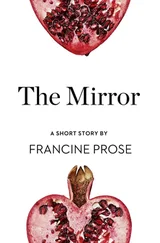Samuel Goodrich - Peter Parley's Own Story. From the Personal Narrative of the Late Samuel G. Goodrich, («Peter Parley»)
Здесь есть возможность читать онлайн «Samuel Goodrich - Peter Parley's Own Story. From the Personal Narrative of the Late Samuel G. Goodrich, («Peter Parley»)» — ознакомительный отрывок электронной книги совершенно бесплатно, а после прочтения отрывка купить полную версию. В некоторых случаях можно слушать аудио, скачать через торрент в формате fb2 и присутствует краткое содержание. Издательство: Иностранный паблик, Жанр: foreign_language, foreign_prose, на английском языке. Описание произведения, (предисловие) а так же отзывы посетителей доступны на портале библиотеки ЛибКат.
- Название:Peter Parley's Own Story. From the Personal Narrative of the Late Samuel G. Goodrich, («Peter Parley»)
- Автор:
- Издательство:Иностранный паблик
- Жанр:
- Год:неизвестен
- ISBN:нет данных
- Рейтинг книги:5 / 5. Голосов: 1
-
Избранное:Добавить в избранное
- Отзывы:
-
Ваша оценка:
- 100
- 1
- 2
- 3
- 4
- 5
Peter Parley's Own Story. From the Personal Narrative of the Late Samuel G. Goodrich, («Peter Parley»): краткое содержание, описание и аннотация
Предлагаем к чтению аннотацию, описание, краткое содержание или предисловие (зависит от того, что написал сам автор книги «Peter Parley's Own Story. From the Personal Narrative of the Late Samuel G. Goodrich, («Peter Parley»)»). Если вы не нашли необходимую информацию о книге — напишите в комментариях, мы постараемся отыскать её.
Peter Parley's Own Story. From the Personal Narrative of the Late Samuel G. Goodrich, («Peter Parley») — читать онлайн ознакомительный отрывок
Ниже представлен текст книги, разбитый по страницам. Система сохранения места последней прочитанной страницы, позволяет с удобством читать онлайн бесплатно книгу «Peter Parley's Own Story. From the Personal Narrative of the Late Samuel G. Goodrich, («Peter Parley»)», без необходимости каждый раз заново искать на чём Вы остановились. Поставьте закладку, и сможете в любой момент перейти на страницу, на которой закончили чтение.
Интервал:
Закладка:
CHAPTER III
RIDGEFIELD SOCIETY – TRADES AND PROFESSIONS – CHIMNEY-CORNER COURTSHIPS – DOMESTIC ECONOMY – DRAM-DRINKING – FAMILY PRODUCTS – MOLLY GREGORY AND CHURCH MUSIC – TRAVELLING ARTISANS – FESTIVAL OF THE QUILTS – CLERICAL PATRONAGE – RAISING A CHURCH – THE RETIRED TAILOR AND HIS FARM.
Let me now give you a sketch of Ridgefield and of the people, how they lived, thought, and felt, at the beginning of the present century. It will give you a good idea of the rustic life of New England fifty years ago.
From what I have already said, you will easily imagine the prominent physical characteristics and aspect of my native town: a general mass of hills, rising up in a crescent of low mountains, and commanding a wide view on every side. The soil was naturally hard, and thickly sown with stones of every size. The fields were divided by rude stone walls, and the surface of most of them was dotted with gathered heaps of stones and rocks, thus clearing spaces for cultivation, yet leaving a large portion of the land still encumbered. The climate was severe, on account of the elevation of the site, yet this was perhaps fully compensated by its salubrity.
Yet, despite the somewhat forbidding nature of the soil and climate of Ridgefield, it may be regarded as presenting a favorable example of New England country life and society at the time I speak of. The town was originally settled by a sturdy race of men, mostly the immediate descendants of English emigrants, some from Milford. Their migration over an intervening space of savage hills, rocks and ravines, into a territory so uninviting, and their speedy conversion of this into a thriving and smiling village, bear witness to their courage and energy.
At the time referred to, the date of my earliest recollection, the society of Ridgefield was exclusively English. I remember but one Irishman, one negro, and one Indian in the town. The first had begged and blarneyed his way from Long Island, where he had been wrecked; the second was a liberated slave; and the last was the vestige of a tribe which dwelt of yore in a swampy tract, the name of which I have forgotten. We had a professional beggar, called Jagger, who had served in the armies of more than one of the Georges, and insisted upon crying, "God save the king!" even on the 4th of July, and when openly threatened by the boys with a gratuitous ride on a rail. We had one settled pauper, Mrs. Yabacomb, who, for the first dozen years of my life, was my standard type for the witch of Endor.
Nearly all the inhabitants of Ridgefield were farmers, with the few mechanics that were necessary to carry on society in a somewhat primeval state. Even the persons not professionally devoted to agriculture had each his farm, or at least his garden and home lot, with his pigs, poultry, and cattle. The population might have been 1200, comprising two hundred families. All could read and write, but in point of fact, beyond the Almanac and Watts' Psalms and Hymns, their literary acquirements had little scope. There were, I think, four newspapers, all weekly, published in the State: one at Hartford, one at New London, one at New Haven, and one at Litchfield. There were, however, not more than three subscribers to all these in our village. We had, however, a public library of some two hundred volumes, and, what was of equal consequence, the town was on the road which was then the great thoroughfare, connecting Boston with New York; and hence we had means of intelligence from travellers constantly passing through the place, which kept us acquainted with the march of events.
If Ridgefield was thus rather above the average of Connecticut villages in civilization, I suppose the circumstances and modes of life in my father's family were somewhat above those of most people around us. We had a farm of forty acres, with four cows, two horses, and some dozen sheep, to which may be added a stock of poultry, including a flock of geese. My father carried on the farm, besides preaching two sermons a-week, and visiting the sick, attending funerals, solemnizing marriages, &c. He laid out the beds and planted the garden; pruned the fruit-trees, and worked with the men in the meadow in hay-time. He generally cut the corn-stalks himself, and always shelled the ears; the latter being done by drawing them across the handle of the frying-pan, fastened over a wash-tub. I was sometimes permitted, as an indulgence, to share this favorite employment with my father. With these and a few other exceptions, our agricultural operations were carried on by hired help.
It was the custom in New England, at the time I speak of, for country lawyers, physicians, clergymen, even doctors of divinity, to partake of these homespun labors. In the library of the Athenæum, at Hartford, is a collection of almanacs, formerly belonging to John Cotton Smith – one of the most elegant and accomplished men of his time – a distinguished Member of Congress, Judge of the Superior Court, and several years Governor of the State; in looking it over, I observed such notes as the following, made with his own hand: "Cut my barley," "began rye harvest," "planted field of potatoes," &c.: thus showing his personal attention to, if not his participation in, the affairs of the farm. Nearly all the judges of the Superior Court occasionally worked in the field, in these hearty old federal times.
But I returned to Ridgefield. The household, as well as political, economy of those days lay in this, – that every family lived as much as possible within itself. Money was scarce, wages being about fifty cents a-day, though these were generally paid in meat, vegetables, and other articles of use – seldom in money. There was not a factory of any kind in the place. 1 1 I recollect, as an after-thought, one exception. There was a hatter who supplied the town; but he generally made hats to order, and usually in exchange for the skins of foxes, rabbits, muskrats, and other chance peltry. I frequently purchased my powder and shot from the proceeds of skins which I sold him.
There was a butcher, but he only went from house to house to slaughter the cattle and swine of his neighbors. There was a tanner, but he only dressed other people's skins. There was a clothier, but he generally fulled and dressed other people's cloth. All this is typical of the mechanical operations of the place. Even dyeing blue a portion of the wool, so as to make linsey-woolsey for short gowns, aprons, and blue-mixed stockings – vital necessities in those days – was a domestic operation. During the autumn, a dye-tub in the chimney corner – thus placed so as to be cherished by the genial heat – was as familiar in all thrifty houses as the Bible or the back-log. It was covered with a board, and formed a cosy seat in the wide-mouthed fireplace, especially of a chill evening. When the night had waned, and the family had retired, it frequently became the anxious seat of the lover, who was permitted to carry on his courtship, the object of his addresses sitting demurely in the opposite corner. Some of the first families in Connecticut, I suspect, could their full annals be written, would find their foundations to have been laid in these chimney-corner courtships.
Being thus exposed, the dye-tub was the frequent subject of distressing and exciting accidents. Among the early, indelible incidents in my memory, one of the most prominent is turning this over. Nothing so roused the indignation of thrifty housewives, for, besides the stain left upon the floor by the blue, a most disagreeable odor was diffused by it.
To this general system of domestic economy our family was not an exception. Every autumn, it was a matter of course that we had a fat ox or a fat cow ready for slaughter. One full barrel was salted down; the hams were cut out, slightly salted, and hung up in the chimney for a few days, and thus became "dried" or "hung beef," then as essential as bread. Pork was managed in a similar way, though even on a larger scale, for two barrels were indispensable. A few pieces, as the spare-ribs, &c., were distributed to the neighbors, who paid in kind when they killed their swine.
Читать дальшеИнтервал:
Закладка:
Похожие книги на «Peter Parley's Own Story. From the Personal Narrative of the Late Samuel G. Goodrich, («Peter Parley»)»
Представляем Вашему вниманию похожие книги на «Peter Parley's Own Story. From the Personal Narrative of the Late Samuel G. Goodrich, («Peter Parley»)» списком для выбора. Мы отобрали схожую по названию и смыслу литературу в надежде предоставить читателям больше вариантов отыскать новые, интересные, ещё непрочитанные произведения.
Обсуждение, отзывы о книге «Peter Parley's Own Story. From the Personal Narrative of the Late Samuel G. Goodrich, («Peter Parley»)» и просто собственные мнения читателей. Оставьте ваши комментарии, напишите, что Вы думаете о произведении, его смысле или главных героях. Укажите что конкретно понравилось, а что нет, и почему Вы так считаете.












